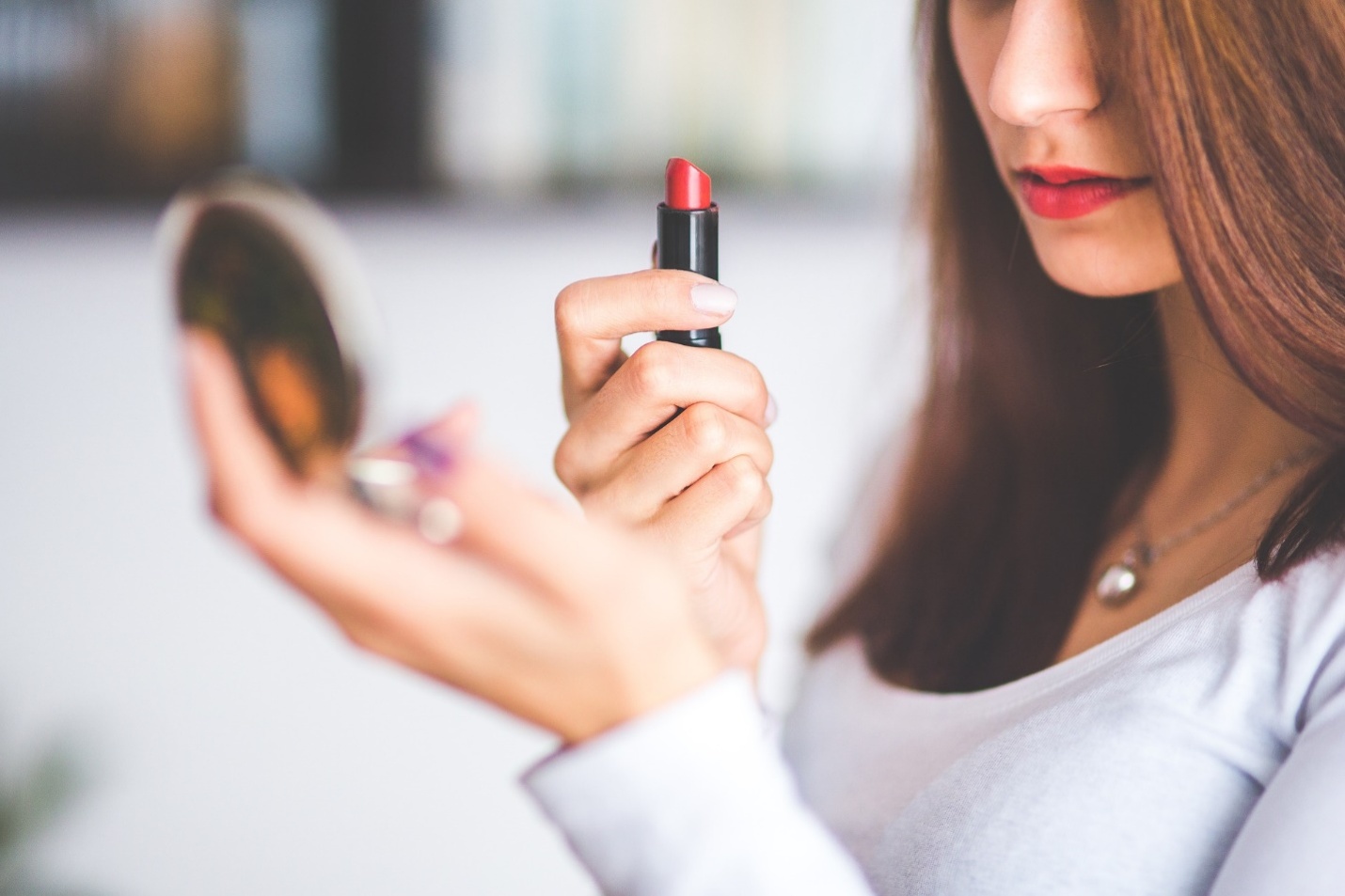Acne tends to pop up at the worst possible time–a day before your friend’s wedding, an important interview or a date! It can really take a toll on your morale and self-confidence. While makeup can help save your day, you have to be very careful about the products you use as they may worsen your condition. Plus, if you forget to clean off your makeup, then BAM! Your skin just breaks out the next morning.
If you have acne-prone skin, you can take some precautions so that your skin doesn’t break-out at the worst time. Here are a few makeup tips and tricks that you can follow to apply makeup without irritating your skin.

Prep Your Face
This tip is not only for those with acne-prone skin but for almost all skin types. Prepping your face is essential before you go about painting it with makeup. It’s important to take good care of your skin before you apply the first coat of makeup. You can do so by exfoliating and moisturizing your skin first. Exfoliation will help get rid of the dead bits of skin from your face.
After exfoliating your skin, apply a good lightweight gel moisturizer and let it sink and set in your skin before you move on to the next step. Both these steps will make your skin feel smooth and well-hydrated. When the base of your skin will be smooth, your makeup will glide on more easily. It’s important to remember this – think of your skin as a non-sanded table; if you try to paint it, you will have a lot of difficulty and bad results. So, don’t forget to exfoliate and moisturize your skin. Don’t forget to use serums such as image skincare ageless and image vital c hydrating repair crème on your skin before moisturizing.
Another important prepping step is applying a primer. A primer helps fill in pores and even-out your skin. Acne-ridden skin appears inflamed. A makeup primer can help neutralize the redness before you apply concealer and foundation.
Don’t Need to Go Oil-Free
Acne-ridden or acne-prone skin is way ahead in the sebum-producing department. A common belief is that those with such skin should avoid oily makeup products as they further hydrate and promote acne. Those suffering from acne search for oil-free products so that their pores don’t get clogged.
Even though oil-free formulas appear to be the logical choice for those with acne prone skin, it is important to acknowledge that not all oils have the same impact on your skin. There are makeup products such as foundations and primers that contain hydrating plant oils like Primrose and grape seed that are super beneficial for those who have acne prone skin. These are additionally beneficial when they’re used with acne skin care products that strip your skin of natural oils. These oils also tend to mimic the natural oils of your skin, offering it antibacterial and anti-inflammatory benefits. So, they not only tend to calm current breakouts but also fend off acne-causing bacteria.
Avoid Occlusive Oils
Occlusive oils or makeup products containing these oils should be avoided at all costs. Occlusive products aren’t completely absorbed by the skin, which means that a layer of this remains on the surface of your skin. These ingredients tend to affect those with acne prone skin. Occlusive oils also don’t allow sebum to exit from the skin pores to the skin surface. Mixed with dead skin cells, these pores get infected by bacteria. Hence, they trigger an inflammatory and immune reaction that ends up becoming an acne lesion.
This mainly happens because these oils don’t mix well with your skin’s natural oils w. Since people with acne-prone skin tend to have high levels of sebum, their pores get clogged and hence the entire breakout cycle starts again. Makeup products that contain phthalates, paraffin, mineral oils and petrolatum are to be avoided at all costs.
Put Away the Heavy Stuff
Thick layers of makeup can restrict your skin from breathing. Even though a thick and heavy foundation may help cover up acne and spots on your face, it’s preferable to select a light and water-based foundation. This will allow your skin to breathe freely and will save you from long-term problems.
Certain foundations also contain special ingredients, like salicylic acid, that not only offer good coverage but also help combat acne in the long run. When concealing, remember to only use concealer on those areas that require it. Too much concealer and a heavy cream-based foundation will not only appear unnatural but will also pull more attention towards problematic areas such as bumps and ridges.
Choose Matte Makeup Products
While dewy and sparkly makeup products draw more attention, they’re not a very good option for those with acne-prone or acne-ridden skin. Dewy products are meant for dry or soft skin. So, getting rid of these products and replacing them with matte makeup options is a major step towards defending your skin against acne.
Also, since dewy makeup is more eye-catching, it will draw more attention towards your acne and other spots that you tried very hard to hide. Let’s not forget that acne-prone skin is already oily and it tends to get shiny. So, purchasing makeup products that will further lubricate your skin is not a very good option. Hence, you should opt for makeup products that offer a matte or semi-matte finishing such as a matte bronzer that will help highlight your cheek bones and give you a nice and healthy glow.
Conclusion
Having acne or acne-prone skin is a great hassle. By incorporating the tips mentioned above into your daily makeup routine, you can avoid acne problems in the long run.